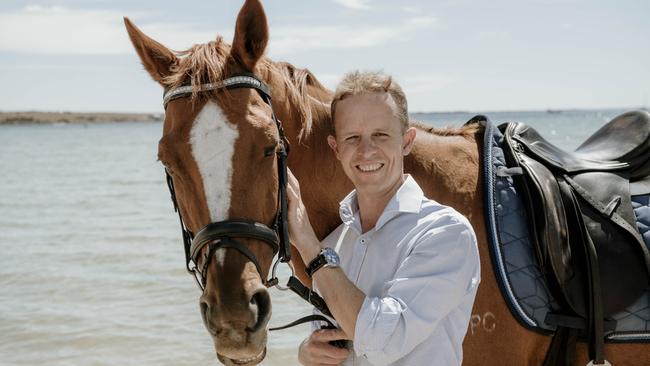Top jockey Kerrin McEvoy leading charge against state tax on gambling
Legendary South Australian jockey Kerrin McEvoy says the state’s racing industry is being crippled by a government impost which is forcing trainers and jockeys interstate.
SA News
Don't miss out on the headlines from SA News. Followed categories will be added to My News.
Legendary South Australian jockey Kerrin McEvoy has called on the new state government to back the beleaguered local racing industry by reducing a tax which he says is forcing leading jockeys, trainers and owners to flee interstate.
The Point of Consumption (POC) gambling tax, which generates revenue for the state government through bets placed online in SA, is levied at the country’s equal highest rate of 15 per cent, some 5 per cent more than racing powerhouse states Victoria and NSW.
He made the comments in an in-depth interview for SAWeekend magazine.
McEvoy, who is a three-time Melbourne Cup winning jockey, said the proportionally high tax meant there was significantly less money in the industry when compared with Victoria and NSW, which forced trainers and owners to move their operations east.
McEvoy’s uncle, Tony McEvoy – one of the state’s best known trainers – announced in February this year he would be shutting down his 40-year South Australian operation to relocate to Victoria.
The trainer cited SA’s high POC tax and the resultant strength of financial opportunities in the eastern states as the motivators behind his departure.
“The tax is obviously one of the main reasons why South Australian racing has been struggling,” Kerrin McEvoy said.
“The same amount of money and financial turnover simply isn’t going back into the industry, that’s why the prize money is [languishing] in the state, and you see big trainers leaving.”
SA WEEKEND INSIDE STORY: KERRIN’S AMAZING RISE TO GREATNESS
Trainer John MacMillan, based at MacMillan Racing on the Finniss River agreed the POC needs to be reduced to bring it in line with the other states, so SA can compete on a more even scale.
He said that, “unlike other states we get no share of TAB turnover as the state government a long time ago sold the TAB in this state.”
He said a larger share of the POC is not a taxpayer handout – it has come from racing, and “giving back” to a healthy industry would be a “sensible investment”.
That point is echoed by Racing SA chief executive Nick Redin, who said the industry is growing but needs support from the POC tax.
“That would see more of the revenue from this tax, which is generated by the racing industry, invested back into the industry.
“We believe this approach will put us on a level playing field with our interstate counterparts and allow us to sustainably grow our sport for the benefit of thousands of local participants and the South Australian economy.”

The jockey, whose celebrated international career grew from within South Australian racing, said he was frustrated by the lack of support afforded to the state’s industry under the current tax structure.
“It’s disappointing. Being a sport loving state like SA is, you’d think they would be at least on par – in terms of support – with the models working in the eastern states,” he said.
“But unfortunately, the South Australian government just doesn’t back the racing industry like the governments in the eastern states do.”
“They (the state government) need to step up and support the local industry in SA.
“It needs to happen, and hopefully it happens in the near future – because big trainers are departing.”
In 2019, a group of South Australia’s leading business people, including Winemaker Wolf Blass, former Clipsal owner Rob Gerard, Thomas Foods boss Darren Thomas, property developer Harry Perks, Yalumba winemaker Robert Hill Smith and Haigh’s Chocolate supremos, Alister and John Haigh all wrote to then premier Steven Marshall calling for the tax to be reduced.
It followed the then government in 2018 ripping $3m out of SA’s racing industry when it pulled its sponsorship of the Adelaide Festival of Racing.
Trainers Lloyd Kennewell and Phillip Stokes have also moved interstate for financial security, along with several top jockeys.



